| Listing 1 - 10 of 14 | << page >> |
Sort by
|
Book
ISBN: 0289798132 Year: 1971 Publisher: London Studio Vista
Abstract | Keywords | Export | Availability | Bookmark
 Loading...
Loading...Choose an application
- Reference Manager
- EndNote
- RefWorks (Direct export to RefWorks)
Politics --- Film --- 791.43 --- Motion pictures in propaganda --- Politics in motion pictures --- #SBIB:309H1328 --- Motion pictures --- Moving-pictures in propaganda --- Propaganda in motion pictures --- Propaganda --- Filmkunst. Films. Cinema --- Films met een ideologische en spiegelfunctie --- Motion pictures in propaganda. --- Politics in motion pictures. --- 791.43 Filmkunst. Films. Cinema
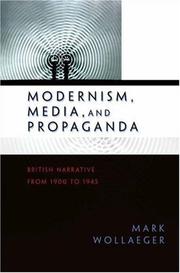
ISBN: 9780691128115 9780691138459 0691128111 0691138451 9786612157639 1282157639 1400828627 Year: 2007 Publisher: Princeton, N.J. : Princeton University Press,
Abstract | Keywords | Export | Availability | Bookmark
 Loading...
Loading...Choose an application
- Reference Manager
- EndNote
- RefWorks (Direct export to RefWorks)
Though often defined as having opposite aims, means, and effects, modernism and modern propaganda developed at the same time and influenced each other in surprising ways. The professional propagandist emerged as one kind of information specialist, the modernist writer as another. Britain was particularly important to this double history. By secretly hiring well-known writers and intellectuals to write for the government and by exploiting their control of new global information systems, the British in World War I invented a new template for the manipulation of information that remains with us to this day. Making a persuasive case for the importance of understanding modernism in the context of the history of modern propaganda, Modernism, Media, and Propaganda also helps explain the origins of today's highly propagandized world. Modernism, Media, and Propaganda integrates new archival research with fresh interpretations of British fiction and film to provide a comprehensive cultural history of the relationship between modernism and propaganda in Britain during the first half of the twentieth century. From works by Joseph Conrad to propaganda films by Alfred Hitchcock and Orson Welles, Mark Wollaeger traces the transition from literary to cinematic propaganda while offering compelling close readings of major fiction by Virginia Woolf, Ford Madox Ford, and James Joyce.
English fiction --- Modernism (Literature) --- Motion pictures in propaganda. --- Propaganda --- History and criticism. --- History --- Motion pictures in propaganda --- Moving-pictures in propaganda --- Propaganda in motion pictures --- Communication in politics --- Political psychology --- Social influence --- Advertising --- Persuasion (Psychology) --- Psychological warfare --- Public relations --- Publicity --- Social pressure --- History and criticism
Book
ISBN: 3741000914 3741000655 389472837X Year: 2017 Publisher: Marburg : Schüren,
Abstract | Keywords | Export | Availability | Bookmark
 Loading...
Loading...Choose an application
- Reference Manager
- EndNote
- RefWorks (Direct export to RefWorks)
Long description: In den 1910er Jahren entstand das moderne Kino als populäre Unterhaltungsform. Während des Ersten Weltkriegs begannen die Krieg führenden Staaten, das neuartige Medium systematisch für Propagandazwecke zu nutzen. Als Bestandteil eines massenmedialen Ensembles sollten Filme auf die öffentliche Meinung einwirken. Geografisch inmitten des Kriegsgeschehens gelegen, spielte die Informationsdrehscheibe Schweiz im weltweiten Propagandakrieg eine prominente Rolle. So betrieb etwa das deutsche Auswärtige Amt über Tarnfirmen mehrere Kinos in der Schweiz. Die Filme, mit denen sowohl die Mittelmächte als auch die Alliierten den schweizerischen Filmmarkt überschwemmten, hatten gegensätzliche Auswirkungen: Einerseits verschärften die sie begleitenden öffentlichen Debatten die Spannungen im Land; andererseits führte der Abwehrreflex gegen ausländische Beeinflussung zum Wunsch nach einem eigenen nationalen Filmschaffen. Die Studie beschreibt die Anfänge der modernen Filmkultur in der Schweiz und gibt einen Überblick über die Etablierung von Filmmarkt und Kinoöffentlichkeit; insbesondere rekonstruiert sie die Rezeption der international zirkulierenden Propagandafilme zwischen 1914 und 1918. Damit beleuchtet der Autor die bisher nur in Grundzügen bekannte frühe Schweizer Film- und Kinogeschichte im Spannungsfeld von Unterhaltung und gezielter politischer Einflussnahme. Biographical note: Adrian Gerber ist Filmwissenschaftler und Historiker. Im Rahmen seiner Forschungstätigkeit am Seminar für Filmwissenschaft der Universität Zürich hat er eine Monografie zur Geschichte der katholischen Filmarbeit in der Schweiz sowie Aufsätze über historische Kinowerbung und Filmplakate veröffentlicht.
World War, 1914-1918 --- Motion pictures in propaganda --- Motion pictures --- Motion pictures and the war. --- History --- Cinema --- Feature films --- Films --- Movies --- Moving-pictures --- Audio-visual materials --- Mass media --- Performing arts --- Moving-pictures in propaganda --- Propaganda in motion pictures --- Propaganda --- History and criticism
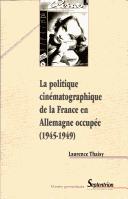
ISBN: 275742694X 2859399038 9782859399030 Year: 2020 Publisher: Villeneuve d'Ascq : Presses universitaires du Septentrion,
Abstract | Keywords | Export | Availability | Bookmark
 Loading...
Loading...Choose an application
- Reference Manager
- EndNote
- RefWorks (Direct export to RefWorks)
En 1945, après avoir constitué un puissant instrument de propagande sous le Troisième Reich, le cinéma allemand est réduit à néant et se trouve soumis au bon vouloir des puissances d’occupation. Tout en affirmant sa volonté de dénazifier et de rééduquer les Allemands, chacune d’elles entreprend de relancer et de développer les activités cinématographiques d’une façon conforme à ses intérêts. Cette étude se propose de cerner les caractéristiques, l’évolution et le rayonnement de l’action menée par les Français. L’importance qu’ils accordent au cinéma se traduit par de nombreuses mesures : réouverture des salles, installation d’ateliers et de studios, création de sociétés francoallemandes, sélection et diffusion de films français, organisation de galas et de festivals, mise en place de ciné-clubs… Si certaines réalisations s’inscrivent dans une politique de rééducation, d’autres dénotent une volonté de rehausser le prestige de la France et d’implanter le cinéma français en Allemagne. En même temps, des accords passés avec les autres puissances d’occupation témoignent de l’impact du contexte international (émergence de la Guerre Froide et adhésion progressive de la France à la politique anglo-américaine) sur le cinéma.
Motion pictures --- Motion pictures, French --- Motion pictures in propaganda. --- Political aspects. --- History. --- France --- Germany --- Relations --- Moving-pictures in propaganda --- Propaganda in motion pictures --- Propaganda --- French motion pictures --- Foreign films --- Cinema --- Feature films --- Films --- Movies --- Moving-pictures --- Audio-visual materials --- Mass media --- Performing arts --- History and criticism --- politique --- Occupation --- cinéma --- Cinéma --- Cinéma dans la propagande --- Aspect politique --- Histoire --- Allemagne
Book
ISBN: 9780786447183 Year: 2011 Publisher: Jefferson, NC London McFarland
Abstract | Keywords | Export | Availability | Bookmark
 Loading...
Loading...Choose an application
- Reference Manager
- EndNote
- RefWorks (Direct export to RefWorks)
"This critical text examines the seventy-year history of comic book superheroes on film and in comic books and their reflections of the politics of their time. Superheroes addressed include Batman, Wonder Woman, Spider-Man, Superman, the Invisible Woman and the X-Men, and topics covered include American wars, conflicts, and public policy"--Provided by publisher.
Propaganda in de film --- Propaganda in motion pictures --- Propagandafilms --- Propagande dans le cinéma --- Superheroes. --- Comic books, strips, etc. --- Superhero films --- Propaganda in motion pictures. --- Motion pictures --- Superheroes --- Political aspects. --- Moral and ethical aspects. --- History and criticism. --- History --- Comic books, strips, etc --- Comic strip superhero films --- Comic strip superheroes films --- Superheroes films --- Fantasy films --- Science fiction films --- Comic book heroes --- Super heroes --- Fictitious characters --- Moving-pictures in propaganda --- Propaganda --- Comic strips --- Comics --- Funnies --- Manga (Comic books, strips, etc.) --- Manhua (Comic books, strips, etc.) --- Manhwa (Comic books, strips, etc.) --- Serial picture books --- Caricatures and cartoons --- Wit and humor, Pictorial --- Moral and ethical aspects --- Political aspects --- History and criticism --- United States --- 20th century --- Manhua (Comic books) --- Manhwa (Comic books) --- 82-931 --- 070.84 --- 741.5 --- 741.5 Spotprenten. Karikaturen. Cartoons. Striptekeningen. Satirische tekeningen --- Spotprenten. Karikaturen. Cartoons. Striptekeningen. Satirische tekeningen --- 070.84 Comics. Stripverhalen--(in de krant) --- Comics. Stripverhalen--(in de krant) --- 82-931 Stripverhaal --- Stripverhaal --- Drawing --- Thematology --- beeldverhalen
Book
ISBN: 9781848850088 1848850085 1848850093 9781848850095 Year: 2009 Volume: *5 Publisher: London ; New York I.B. Tauris Publishers
Abstract | Keywords | Export | Availability | Bookmark
 Loading...
Loading...Choose an application
- Reference Manager
- EndNote
- RefWorks (Direct export to RefWorks)
"When the Bolsheviks seized power in the Soviet Union during 1917, they were suffering from a substantial political legitimacy deficit. Uneasy political foundations meant that they were always on the defensive and cinema became a key part of the strategy to protect the existence of the USSR. This welcome book shows how one of film's central functions was as an important means of convincing the masses that the regime was legitimate and a bearer of historical truth. Based on extensive research in archives and primary sources, the book examines the interaction between politics and the Soviet cinema industry during the period between Stalin's rise to power and the beginning of the Great Patriotic War. This was the era when the Bolsheviks were trying to develop a 'cinema for the millions', which sought to engage Soviet citizens politically by carefully blending entertainment with the communist message. Jamie Miller investigates how political and administrative decision-making, censorship, thematic planning and purges were shaped by the Bolsheviks' defensive outlook, which in turn had a largely negative impact on the production process. He examines the role of film unions and societies, compares the development of two different studios and looks at the education system for cinema personnel. He also analyses key films of the period, including the classic musical Circus, the class enemy drama The Party Card and the political epic The Great Citizen."--Page 4 of cover.
Motion pictures --- Motion pictures in propaganda --- Communism and motion pictures --- Political aspects --- History --- #SBIB:309H1313 --- Communism and moving-pictures --- Motion pictures and communism --- Moving-pictures in propaganda --- Propaganda in motion pictures --- historia --- Cinéma dans la propagande --- Communisme et cinéma --- Cinéma dans la propagande --- Communisme et cinéma --- Film --- Russia --- Cinéma --- Aspect politique --- Propaganda --- History. --- Geschiedenis en/of organisatie van het filmwezen: algemeen en per land (met inbegrip van de rol van het filmwezen in de ontwikkelingsproblematiek)
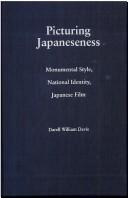
ISBN: 0231102313 9780231102315 9780231102308 Year: 1996 Publisher: New York Columbia University Press
Abstract | Keywords | Export | Availability | Bookmark
 Loading...
Loading...Choose an application
- Reference Manager
- EndNote
- RefWorks (Direct export to RefWorks)
791.43 <5> --- Filmkunst. Films. Cinema--Azië --- Motion pictures in propaganda --- Motion pictures --- National characteristics, Japanese. --- Political aspects --- Social aspects --- 791.43 <5> Filmkunst. Films. Cinema--Azië --- National characteristics, Japanese --- Japanese national characteristics --- Cinema --- Feature films --- Films --- Movies --- Moving-pictures --- Audio-visual materials --- Mass media --- Performing arts --- Moving-pictures in propaganda --- Propaganda in motion pictures --- Propaganda --- History and criticism --- J6839 --- J4122 --- J4126 --- Japan: Media arts and entertainment -- cinema --- Japan: Sociology and anthropology -- nationalism --- Japan: Sociology and anthropology -- media and (mass) communications
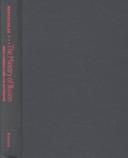
ISBN: 067457639X 0674576403 Year: 1996 Publisher: Boston (Mass.) : President and fellows of Harvard college,
Abstract | Keywords | Export | Availability | Bookmark
 Loading...
Loading...Choose an application
- Reference Manager
- EndNote
- RefWorks (Direct export to RefWorks)
Film --- anno 1940-1949 --- anno 1930-1939 --- Germany --- National socialism and motion pictures. --- Motion pictures --- Motion pictures in propaganda --- Nazisme et cinéma --- Cinéma --- Cinéma dans la propagande --- History. --- Histoire --- #SBIB:309H1320 --- #SBIB:309H521 --- #SBIB:AANKOOP --- De filmische boodschap: algemene werken (met inbegrip van algemeen filmhistorische werken en filmhistorische werken per land) --- Audiovisuele communicatie: inhoudsanalyse: onderzoekingen --- Nationaal-socialisme en film --- National socialism and motion pictures --- National-socialisme et cinema --- Nazisme et cinéma --- Cinéma --- Cinéma dans la propagande --- History --- Propaganda in motion pictures --- Motion pictures in propaganda - Germany.
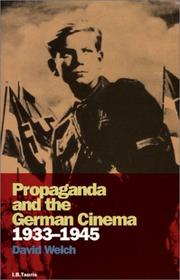
Abstract | Keywords | Export | Availability | Bookmark
 Loading...
Loading...Choose an application
- Reference Manager
- EndNote
- RefWorks (Direct export to RefWorks)
Nationaal-socialisme en film --- National socialism and motion pictures --- National-socialisme et cinema --- -#SBIB:309H1331 --- Moving-pictures in propaganda --- Propaganda in motion pictures --- Motion pictures in propaganda --- Motion pictures --- #SBIB:309H1313 --- #SBIB:309H1331 --- #SBIB:93H3 --- #SBIB:94H3 --- 32.019.5 --- Motion pictures and national socialism --- 32.019.5 Openbare mening. Publieke opinie --- Openbare mening. Publieke opinie --- Propaganda --- History --- Geschiedenis en/of organisatie van het filmwezen: algemeen en per land (met inbegrip van de rol van het filmwezen in de ontwikkelingsproblematiek) --- Films met een persuasieve functie (met inbegrip van de propaganda- en reclamefilm) --- Thematische geschiedenis --- Geschiedenis van Duitsland --- National socialism and motion pictures. --- Germany --- Propaganda [German ] --- 20th century
Book

ISBN: 9781844574247 9781844574230 1844574237 1844574245 Year: 2011 Publisher: Basingstoke Palgrave Macmillan
Abstract | Keywords | Export | Availability | Bookmark
 Loading...
Loading...Choose an application
- Reference Manager
- EndNote
- RefWorks (Direct export to RefWorks)
"In these two volumes of original essays, scholars from around the world address the history of British colonial cinema stretching from the emergence of cinema at the height of imperalism, to moments of decolonization and the ending of formal imperialism in the post-Second World War"--
Film --- Motion pictures --- Colonies in motion pictures --- Cinéma --- Colonies au cinéma --- Colonies --- History --- Histoire --- Great Britain --- Grande-Bretagne --- Impérialisme --- Cinéma et propagande --- Colonies in motion pictures. --- Histoire et critique --- Au cinéma --- Colonies. --- Great Britain. --- History. --- film --- filmgeschiedenis --- twintigste eeuw --- documentaire film --- postkolonialisme --- kolonialisme --- Groot-Brittannië --- filmtheorie --- filmproductie --- filmdistributie --- 791.43 --- Documentary films --- Historical films --- Imperialism in motion pictures. --- Motion pictures in propaganda --- World War, 1939-1945 --- Performing arts --- Political aspects --- Motion pictures and the war. --- Film & Video --- General. --- History & Criticism. --- Cinéma --- Colonies au cinéma --- Imperialism in motion pictures --- World War, 1939-1945, in motion pictures --- Cinema --- Feature films --- Films --- Movies --- Moving-pictures --- Audio-visual materials --- Mass media --- Moving-pictures in propaganda --- Propaganda in motion pictures --- Propaganda --- Documentaries, Motion picture --- Documentary videos --- Factual films --- Motion picture documentaries --- Moving-pictures, Documentary --- Documentary mass media --- Nonfiction films --- Actualities (Motion pictures) --- Motion pictures and the war --- History and criticism --- Colonial Film Unit (Great Britain) --- Histoire. --- Histoire et critique. --- Au cinéma.
| Listing 1 - 10 of 14 | << page >> |
Sort by
|

 Search
Search Feedback
Feedback About UniCat
About UniCat  Help
Help News
News